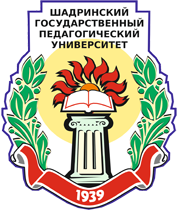Педагогические условия формирования ценностного отношения к культуре родного края у детей старшего дошкольного возраста
Pedagogical conditions for the formation of a value attitude to the culture of the native land in senior preschool age children
Аннотация
Цель исследования – представить процесс организации формирующего этапа экспериментальной деятельности по формированию ценностного отношения к культуре родного края у детей старшего дошкольного возраста в соответствии с выделенными педагогическими условиями. В статье раскрываются аспекты организации экспериментальной деятельности по формированию ценностного отношения к культуре родного края у детей старшего дошкольного возраста (на примере реализации модуля «Духовная культура» региональной парциальной программы для детей 5-7 лет «Наследие Югры: на пути к истокам» (далее - Программа). Анализ планирования образовательной деятельности с дошкольниками по проблеме исследования, проведенный на констатирующем этапе эксперимента свидетельствует о том, что реализация задач по формированию ценностного отношения к культуре родного края в ДОО осуществляется путем включения регионального содержания в структуру познавательных занятий и в образовательную деятельность в режимных моментах. При этом, отмечается, что такие разделы как «Духовная культура ХМАО – Югры» во многих ДОО региона слабо представлены в основной общеобразовательной программе ДОО (далее – ООП ДОО) либо практически отсутствуют. Данные результаты послужили основанием для глубокой работы по формированию у детей 5-7 лет не только представлений о духовной культуре, но и ценностного отношения к ней. Научная новизна исследования заключается в раскрытии основных аспектов организации образовательной деятельности с детьми 5-7 лет по формированию у них ценностного отношения к культуре родного края (на примере реализации модуля «Духовная культура» Программы). В результате исследования автор приходит к выводу, что организованная экспериментальная работа по данному направлению с применением заявленного педагогического условия, которое заключается в интеграции использования традиционных и электронных образовательных ресурсов, способствует проявлению интереса к духовной культуре ХМАО – Югры; развитию ценностных ориентаций к народному фольклору и произведениям писателей и поэтов Югры; развитию способности эстетического восприятия объектов декоративно-прикладного искусства народов ханты и манси и др.
Abstract: The purpose of the study is to present the process of organizing the formative stage of experimental activities to form a value attitude to the culture of the native land among children of senior preschool age in accordance with the identified pedagogical conditions. The article reveals aspects of the organization of experimental activities to form a value attitude to the culture of the native land in senior preschool age children (on the example of the implementation of the module “Spiritual Culture” of the regional partial program for children aged 5-7 years “Heritage of Yugra: on the way to the origins” (hereinafter - Program) An analysis of the planning of educational activities with preschoolers on the research problem, carried out at the ascertaining stage of the experiment indicates that the implementation of tasks for the formation of a value attitude to the culture of the native land in preschool educational institutions is carried out by including regional content in the structure of cognitive activities and in educational activities in regime At the same time, it is noted that such sections as “Spiritual culture of Khanty-Mansiysk Autonomous Okrug – Yugra” in many pre-school educational institutions of the region are poorly represented in the main general educational program of the pre-school educational institution (hereinafter - the PEO PEO) or are practically absent. These results served as the basis for in-depth work on the formation in 5-7 years aged children not only ideas about spiritual culture but also a value attitude towards it. The scientific novelty of the study lies in the disclosure of the main aspects of the organization of educational activities with 5-7 years aged children to form their value attitude to the culture of their native land (on the example of the implementation of the “Spiritual Culture” module of the Program). As a result of the study, the author comes to the conclusion that organized experimental work in this area using the declared pedagogical condition, which consists in integrating the use of traditional and electronic educational resources, contributes to the manifestation of interest in the spiritual culture of Khanty-Mansi Autonomous Okrug - Yugra; development of value orientations to folklore and works of writers and poets of Yugra; development of the ability of aesthetic perception of objects of decorative and applied art of the peoples of the Khanty and Mansi, etc.






